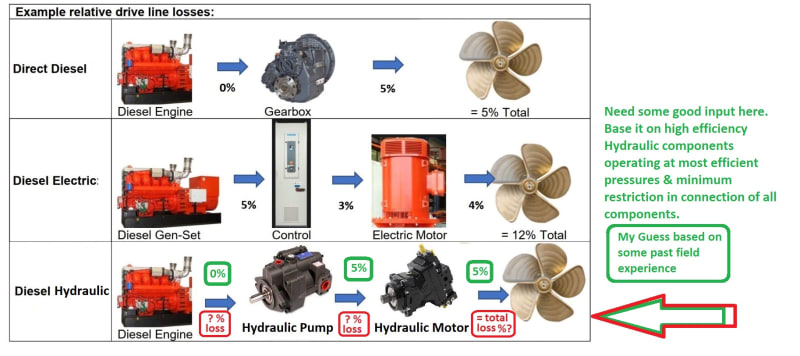
Hopefully I came to the right place for some qualified information on hybrid drive system comparisons. I am looking for opinions and information from "others" based on their experiences.
Our business is all based around marine power systems for both vessel propulsion and auxiliary/ancillary hydraulic systems. We also have designed, and actually put into , two diesel-hydraulic vessel propulsion systems. One was in the 10 HP range, and one in the 80-100HP range. Both worked extremely well for the intended use but both were in applications with low annual hour light duty service.
We are now looking at a system design in the 200 HP range for high annual hour heavy duty service .
All is on the drawing board at this stage, but because of the overall design flexibility of going "hydraulic" we hope to come up with a viable efficiency comparison to the tried and proven "diesel electric" drive systems that have been in use for decades in trains and large ocean vessels.
It really all comes down the heat losses and mechanical losses in any power conversion system. What hydraulics can offer us is an easy solution in smaller systems to load the diesel engine close to its peek BSFC range and most any RPM, and still control overloading it; and an easy way to install the engine in an optimum location in the vessel that allows better use of space and weight distribution.. I have attached a chart ( maybe overly simplistic, but at this point it work to get the point across) that I found on the internet and added at the bottom "hydraulic example." The numbers for the Direct Drive & Diesel Electric Drive were there--As to whether they are right or wrong, I do not know, but they seem "about right" to me.
Your thoughts and input will be much appreciated.
Thanks
Tony ---------------
Tony Athens
